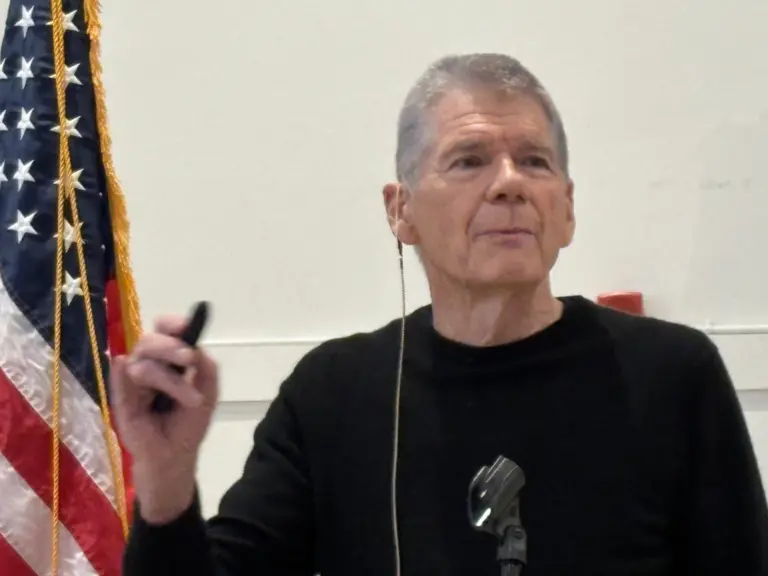By Jack Creeden
On most college, university and K-12 campuses right now, it is relatively quiet. Certainly there are multiple academic and athletic programs and traditional camp sessions sponsored by a variety of departments and specialized units. But the rhythm of a school community moves along at a slower pace in the middle of summer compared to the sometime frenetic scale of activities that occur during the academic year.
It seems that summer is the perfect time to reflect on our various curricula. Budget decisions and personnel hiring have, for the most part been finalized. End of the year performance evaluations are done, so the pressure to accomplish several of the most important tasks for faculty and administrative leaders is reduced.
During the summer, we can wonder about the failures and successes of the year just completed, and at least start the conversations about how to improve on what we do?
This past year I suspect every college and K-12 school wrestled with questions or challenges about the content of the curriculum. At the university level, we saw too many instances where invited speakers were shouted down or disinvited to campus because some portion of the community did not support their views or research. Some undergraduates told stories of a chilling effect on campus because their opinions did not align with what appeared to be the reflections of the faculty or a majority of their peers.
At the K-12 level, we saw repeated instances of often vitriolic School Board meetings where accusations about curricular content, and more alarming, charges about explicit faculty and classroom agendas were shouted across meeting rooms at decision-makers. Many of those exhortations were shaped by misrepresentations, personal attacks, and sometimes explicit threats toward individuals.
All of these incidents are ready made for today’s ubiquitous 24-7 news cycle that reduces the complex discussion about how we teach and what we should learn to headline-grabbing 30 second soundbites. After what seemed to be a never-ending year of mean-spirited exchanges at all levels, I often wonder if anybody was truly listening, and equally troubling, if speakers felt that they were heard when they shared their views?
Thomas Jefferson believed that the experiment in democracy he helped create needed educated citizens in order for the society to thrive. But the debate about what “educated” means has brought our kindergarten through graduate school system, once the pride of our country and a model for the rest of the world to emulate, to a noisy and dysfunctional standstill.
Whether it is angry parents, book-banning protestors, state legislators, governors, or presidential candidates, there seems to be little if any agreement about what it means to be an educated citizen in the 21st Century.
What to do? I believe the solution to the impasse must include K-12 classroom teachers, and not be solely assigned to the lecture halls of higher education. For it is at the K-12 level that our students learn their first lessons about the making of the republic and the responsibility of being a well-educated citizen in a democracy. Elementary and secondary school teachers across the country get the first opportunity to share with students the complex and often complicated story about how we have evolved as a nation, in both positive and negative ways.
Some argue that our current dilemma is the result of the failure of K-12 civics education. Others wonder if the universal support for increased STEM or STEAM curricular initiatives has come at the cost of a reduced emphasis on civic education at the K-12 level?
A 2017 study by the Brookings Institution reported that 44% of college students believed that hate speech was not protected by the First Amendment, and that 51% believed it was ok to shout down a controversial speaker. In that same year, former Harvard President Derek Bok called on teachers to do more “to prepare young people for responsible citizenship in a democratic society.” Bok challenged educators to remember John Dewey’s observation that “Democracy has to be born anew every generation, and education is its midwife,” (Democracy and Education, 1916).
To accomplish the teaching goals Dewey sets for us, we must commit ourselves to both listen to one another and be confident that we are being heard, not an easy task in today’s highly polarized society. We must all acknowledge that a quality and honest civic education curriculum is needed now more than ever.
The good news is that “hundreds of ideologically, philosophically and demographically diverse group of historians, political scientists and educators,” have been working to develop guidelines for excellence in history and civics for all learners (Educating for American Democracy EAD, 2022). The EAD leadership believes that its purpose is to inculcate “skills and virtues for productive, civil disagreement.” It’s what Johns Hopkins President Ronald Daniels calls the importance of having “really good and productive conversations across pretty deeply held differences” (Inside Higher Education, 3.25.23).
One hopes that in the less frenetic pace of the summer, educators, parents and all concerned parties might come together to discuss, in a civil manner, the guidelines offered by EAD. There are bound to be differences in our local discussions as there were with this national group. But their bipartisan commitment to finding a way to improve civics education is a model for all of us to follow. And it starts with our individual commitment to listen and be heard.
Jack Creeden, Ph.D. is the Head of Whitby School and the former Chair of the Board of the National Association of Independent Schools.




